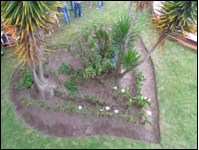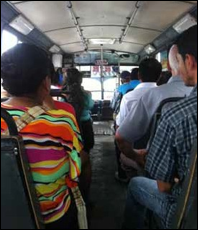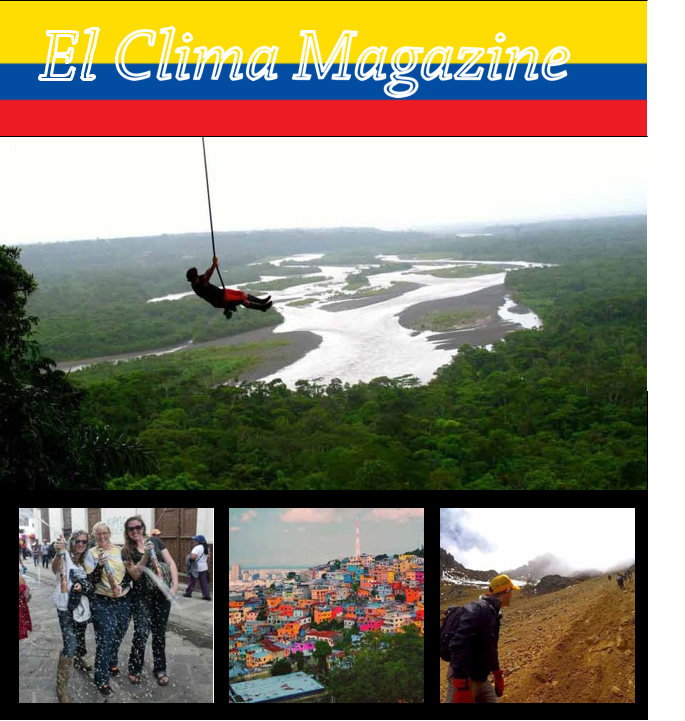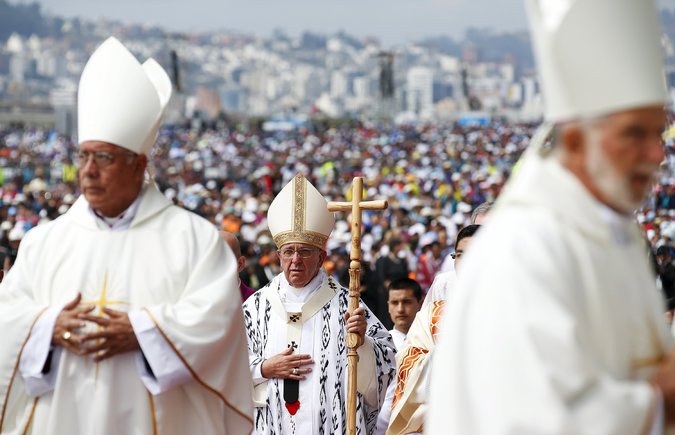El Clima June 2015 – “Posh Corps”
by a PCV in Ecuador
This is re-posted from the volunteer magazine El Clima.
Definition: Peace Corps site placements that lack the stereo- typical hardships of service. Sites with: running water, electricity, internet, washers and dryers, in- door plumbing, and/or hot water.
Among volunteers, this term can be loaded, implying that a volunteer is not suffering enough to earn real PCV status. The need of the countries we serve reflects the type of work and lifestyle that volunteers lead while they are abroad. I’d like to break the stereotype, without going too far into murky waters, which seems to be rooted in the nostalgia for the 1960s and reflects a paternalistic ideal of the world beyond U.S. borders.
As a volunteer in a middle-class community of educated professionals, I count myself among those who are in “posh corps” placements. At times, because of the idea that people have of “rough and tough” for Peace Corps, my middle-class life- style made me feel that I would let people at home down if they knew how much I was not suffering in Ecuador. Or that, frankly, my family would not support my being here if my placement were not “hard enough.” I signed up for worldwide service; yet here I am, working and enjoying some amenities common to the U.S., just like the population of the teach- ers I work with. I am as guilty as anyone for believing my experi- ence would be like the posters, something like a very rainy season on M*A*S*H with fewer martinis, and English teaching instead of surgery. It is nothing like I imag- ined, except for the teaching part. Also, there’s a lot more rum and zhumir here than gin. This may be a sign that recruitment propaganda is in need of an overhaul.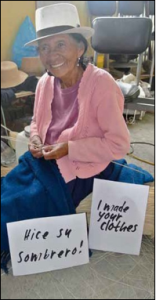
Needless to say, I was uneducated about Ecuador and the TEFL program. That in itself is an important reason to come: to expel provincial ideas about the world that I unknowingly maintained. Volunteers live at the level of the people in their community with the goal of integrating into that community. This allows us to better share our expertise with the host country nationals who request it. In the countryside, volunteers may have an outdoor toilet and live at home with the family for their entire service. It all depends on how the people they work with live, and the cul- tural expectations of the commu- nity. On the other hand, I live in an apartment in a mid-sized city. I continue to eat with my Ecuador- ian family, but I have the option to eat at home. I have hot water and a bath tub. On weekdays, I go to work in heels and a suit jacket, just like I did in the US.
Among PCVs, enduring hard- ship during service comes in various forms and can be self- inflicted. There are volunteers who bathe in cold water though they have hot water available, or who do laundry by hand regard- less of having access to a washing machine. The idea is that suffering is a requirement to be a dedicated volunteer. It’s worth reflecting on why the notion exists that hardship is part and parcel to sharing information with the people we live and work with. Though I worked with struggling communities in the U.S., I never once felt that I should hand wash my clothes or take a cold shower to better serve their needs. I ask, how would host nationals inter- pret this motivation to go abroad to endure hardship? If the shoe were on the other foot, how would I feel if someone came to visit me and decided to camp on my lawn because my house was nicer than expected?
In short or long, being a volunteer is about sharing skills with and learning new skills from our communities. There are difficulties inherent to integrating and working abroad; we are people from distinct cultures, languages, and ideologies, and it is work to build friendships and working re- lationships in spite of these differences. Yes, I’ve taken a few bucket baths when the water was out. I’ve done this at home in Colorado, too. Thankfully, the world is a dif- ferent place than it was in the 1961 and the work we do has evolved according to the needs expressed by the countries who host volun- teers. There aren’t “posh corps volunteers” so much as there are volunteers who fulfill the requests for skills in a variety of communi- ties, like we always have. The reality that we are serving in increasingly better-off communities may just mean that soon we’ll be out of a job—just—as we hoped.
El Clima June 2015 – “Posh Corps” Read More »

